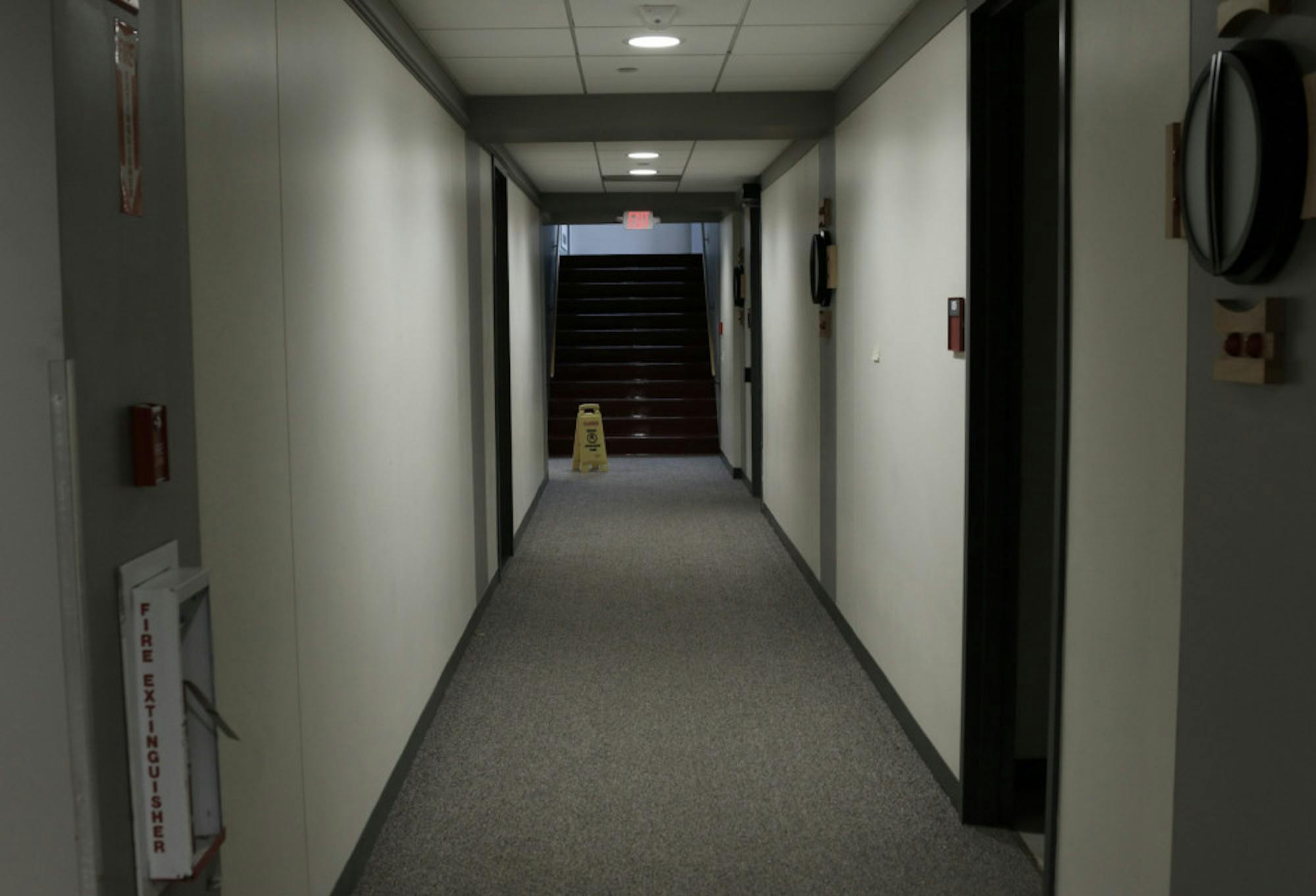A maintenance issue caused the basement of the Olin Center to flood last Thursday at approximately 10:30 a.m. The flooding was the result of an error that occurred while a vendor was testing the sprinkler system.
According to University Fire Marshall John Walsh, such tests are required under the Massachusetts Fire Code.
“Some buildings require fire pumps to bolster the city water pressure within the fire sprinkler system of that building,” Walsh wrote in an email to the Daily. “On the Medford-Somerville campus, the Olin Center, Cabot Center, and Joyce Cummings Center are the only buildings that require fire pumps.”
In order for the fire pump to achieve its necessary flow rates, high water pressure must flow through nozzles attached to a pump test header. In Cabot, this pump test header faces the Olin Center.
“During this testing process, the vendor returned to the sub-basement of Cabot (that is where the fire pump is located) to adjust pump settings,” Walsh wrote. “At some point in this adjustment, the pump was stopped. The vendor had not realized that city water pressure was still flowing from the exterior nozzles.”
As a result, the flow of the water was redirected to the exterior stairwell leading to the basement of Olin. The water flow lasted for several minutes, causing the baseboard at the interior doorway to get wet.
Since the incident, the baseboard has been removed and facilities workers have brought fans to dry the wet area. Tufts will not be pursuing any renovations.
In the meantime, the affected department has moved their classes to different rooms.
Patrick Collins, Tufts’ executive director of media relations, stressed that this is an isolated incident, and students and faculty should not be concerned with the condition of Olin.
“There is no need for a renovation — the damage was not extensive,” Collins wrote in an email to the Daily. “With the baseboard removed, the walls can be dried and the area properly repaired and restored. We expect the repairs to be completed next week.”
Hosea Hirata, director of the international literary and visual studies program, was supposed to teach in Olin around the time the flooding occurred. Hirata noted previous issues with Olin, such as leakage from the rain in his office, but said that he has never experienced flooding of this nature in the building.
Hirata was alerted of the flooding by his assistant telling him his classroom could not be used. His class was moved to Zoom instead.
Hirata described how the event echoed the unpredictability of the early stages of the COVID-19 pandemic, highlighting how both events show the importance of flexibility.
“It was kind of interesting to go back to Zoom teaching … like back to 2020, when everything had suddenly changed,” he said. “I think we all learned how things can be unpredictable. We are very flexible people who adapt to things as things change.”
Anisa Khatana, a student in Hirata’s class, was not happy to be back on Zoom.
“In a class that's mostly discussion-based, sitting there on Zoom is really not fun. [It] definitely gave me COVID flashbacks,” Khatana, a junior, said. “I [had] kind of forgotten that awkward feeling of sitting on Zoom when your professor’s trying to talk to and engage the whole class and everyone's just on mute.”
Khatana noted that she wished Olin was prioritized a bit more.
“I think it seems pretty clear that the university prioritizes STEM facilities,” she said. “We have a pretty significant language and culture requirement here. Every student is probably going to have to take a class in Olin at some point. And I just think it would be nice if it was appreciated a little bit more because there are so many amazing departments and professors and classes that are housed there.”






